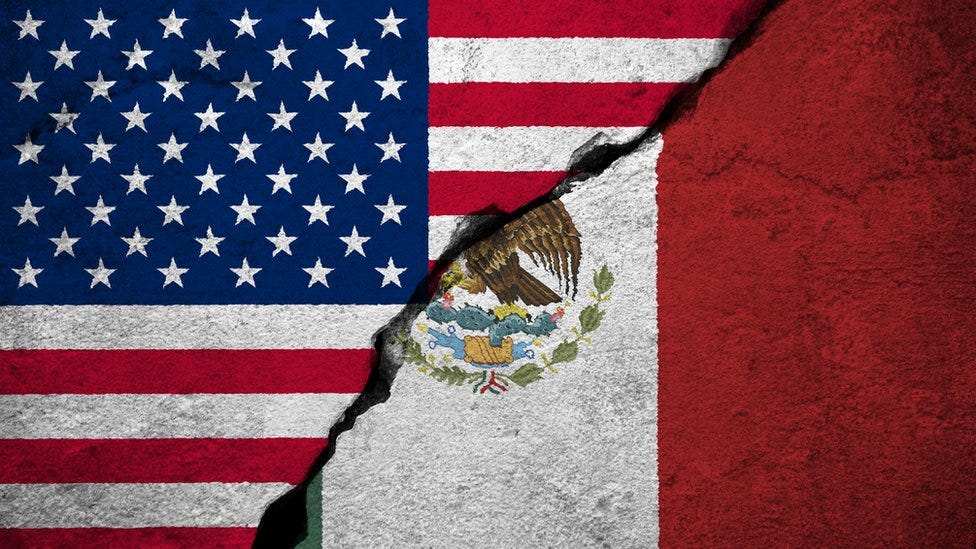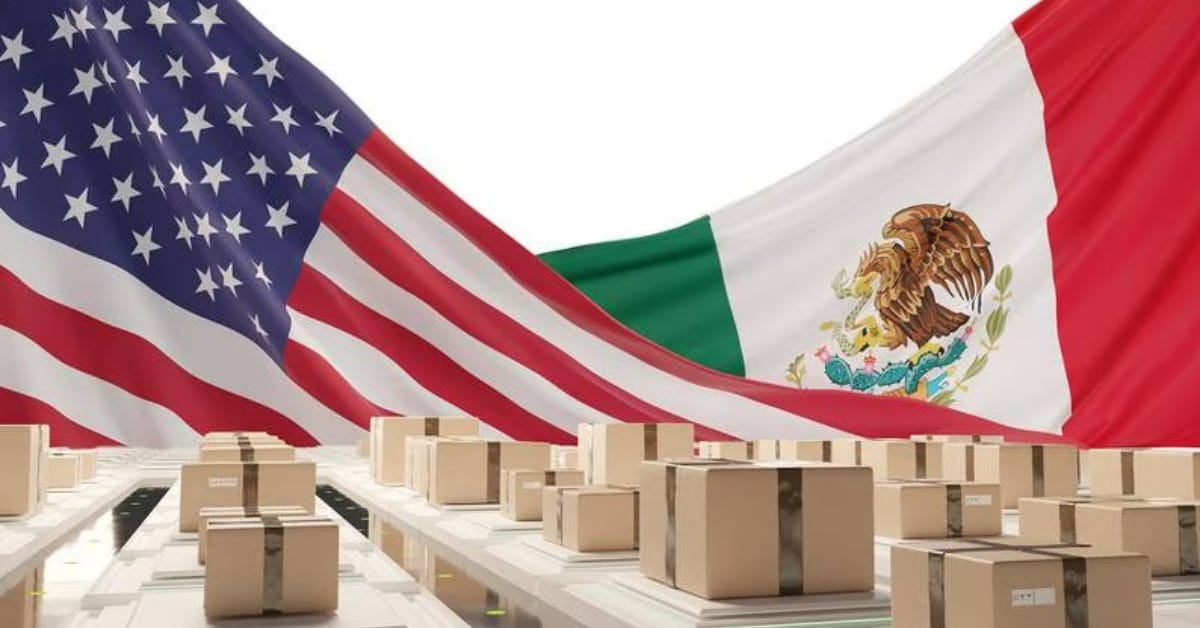Is Mexico Becoming Less Dependent on the U.S.?
What It Means for Expats
For decades, Mexico has been seen as economically, politically, and culturally intertwined with the United States. Trade agreements like NAFTA (now USMCA), cross-border migration, and U.S. corporate investment have all reinforced this dependency.
But now we are a shift is happening. Mexico is diversifying its trade, strengthening partnerships with China and other nations, and asserting itself politically.
Many Americans living in Mexico assume this country will always maintain a close relationship with the U.S…But let’s explore it.
In this article, I’ll break down:
Why Mexico historically relied on the U.S. (trade, migration, security).
How Mexico is reducing its dependence through new trade partnerships and diplomatic shifts.
What this means for expats—including potential visa changes, economic instability, and diplomatic tensions.
What steps expats should take to prepare for the possibility of a U.S.-Mexico split.
If you’re living in Mexico or planning to, this is a topic you can’t afford to ignore.
Why Mexico Has Historically Relied on the U.S.
For much of modern history, Mexico has been deeply tied to the United States. This relationship has been shaped by three main factors:
1. Trade & Economic Dependence
Mexico’s economy has been heavily reliant on U.S. trade for decades. A few key points illustrate this:
Over 80% of Mexico’s exports go to the United States AKA Mexico vulnerable to U.S. economic downturns and policy changes.
The USMCA (formerly NAFTA) agreement locks Mexico into a North American supply chain, particularly in manufacturing. U.S. companies use Mexico for cheap labor, while Mexican businesses depend on U.S. buyers.
The Mexican peso’s value is closely tied to the U.S. dollar. When U.S. interest rates rise or fall, the peso often follows.
Yes..this economic dependency has been both an advantage and a liability for Mexico. While it guarantees a stable market, it also makes Mexico highly vulnerable to decisions made in Washington.
2. Migration & Remittances
Migration has been a key factor in U.S.-Mexico relations. The U.S. has historically been a safety valve for Mexico’s economy—when jobs are scarce, Mexicans head north.
As of 2023, over 36 million people of Mexican origin live in the U.S.
These immigrants send over $60 billion annually back to Mexico in remittances, making up nearly 4% of Mexico’s GDP
U.S. immigration policies directly impact Mexico—deportations, border crackdowns, and visa restrictions create ripple effects in Mexican society.
Mexico’s reliance on remittances means that U.S. economic downturns, border policies, and immigration laws have direct consequences for millions of Mexican families.
3. Security & The War on Drugs
The U.S. has long pressured Mexico to combat drug cartels, often providing financial aid, military equipment, and intelligence support.
The Mérida Initiative (2008-2021) funneled over $3.3 billion in U.S. military aid to Mexico for counter-cartel operations (Source: Congressional Research Service).
The U.S. frequently blames Mexico for drug-related issues like the fentanyl crisis, while Mexico accuses the U.S. of fueling cartel violence by supplying guns and demand for drugs.
Recent Mexican efforts to curb U.S. law enforcement operations suggest a cooling of military cooperation.
Security cooperation has historically strengthened ties between Mexico and the U.S., but recent developments might be weakening the relationship.
The Shift: Mexico’s Move Toward Greater Independence
Over the last decade, Mexico has been actively reducing its dependence on the U.S. This shift is happening across trade, politics, and security.
1. Mexico is Diversifying Trade Partners
For years, Mexico has been too reliant on U.S. trade. Now, the country is making moves to strengthen its global economic ties.
China’s Growing Influence:
China is investing heavily in Mexico’s infrastructure, including ports, railways, and energy projects.
Some Mexican businesses now prefer working with Chinese suppliers over American ones.
Mexico has also become a backdoor for Chinese exports—some Chinese goods are routed through Mexico to avoid U.S. tariffs.
Increased Trade with Europe & Latin America:
Mexico is strengthening free trade agreements with the EU and BRICS nations (Brazil, Russia, India, China, and South Africa).
Mexico is positioning itself as an alternative manufacturing hub for companies looking to leave China.
2. Mexico’s Political & Military Pushback Against U.S. Influence
Mexican leadership—especially under AMLO—has been far less cooperative with the U.S. than previous governments.
Nationalization of key industries: AMLO has pushed for more state control over Mexico’s oil, lithium, and energy sectors, reducing U.S. corporate influence.
Growing diplomatic ties with China and Russia: Mexico has refused to follow U.S. sanctions on China and Russia, signaling a more independent foreign policy.
Restrictions on U.S. law enforcement operations: The Mexican government scaled back DEA operations in Mexico in 2022, limiting American involvement in anti-cartel efforts.
These moves suggest Mexico wants to distance itself from U.S. dominance and chart its own course.
What This Means for Expats
This may shift directly impacts Americans living in Mexico.
1. Could U.S.-Mexico Relations Deteriorate?
If tensions escalate, could Mexico make residency harder for Americans while favoring other nationalities?
Could stricter visa policies or new foreign income taxes be introduced?
2. Will the Peso Become More Volatile?
If Mexico decreases reliance on U.S. trade, the peso could become more unstable.
Expats relying on USD income may need new strategies to hedge against currency fluctuations.
3. Will Americans Be Less Welcome?
If Mexico aligns more with China and BRICS nations, will U.S. expats face more political or social friction?
Will digital nomads and retirees face backlash as Mexico prioritizes economic independence?
What Expats Should Do to Prepare
1. Secure Long-Term Residency ASAP
Get temporary or permanent residency before policies change.
Mexico could tighten visa requirements in response to political shifts.
2. Diversify Income & Investments
If Mexico moves away from the U.S., expats relying solely on the dollar may face challenges.
Consider holding assets in pesos or investing in Mexican real estate.
3. Stay Informed & Flexible
Watch for new government policies that could impact expats.
Be prepared to adapt if Mexico’s political or economic climate changes.
If you want me to continue writing posts like this, give this article a like.



